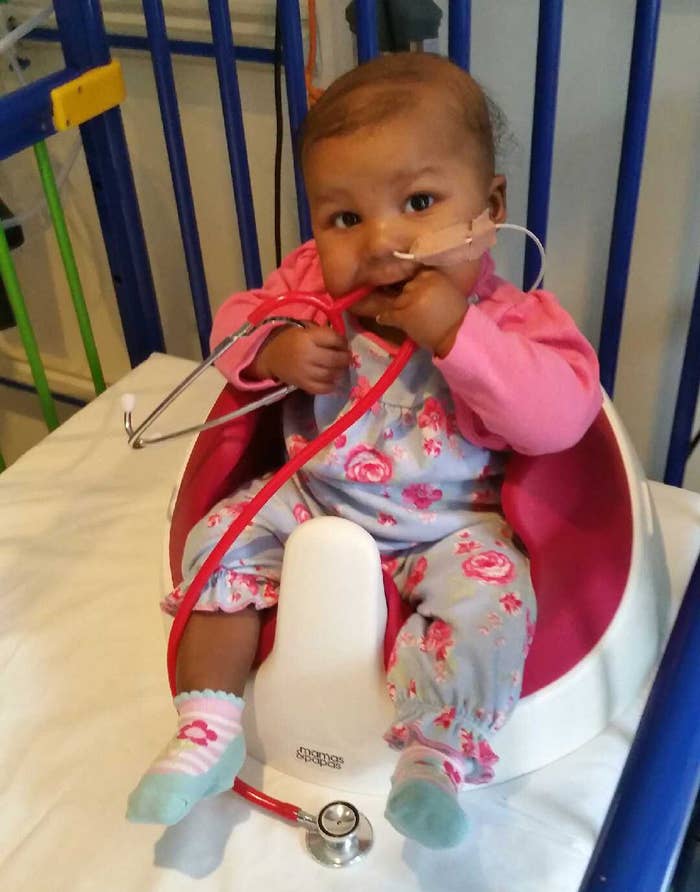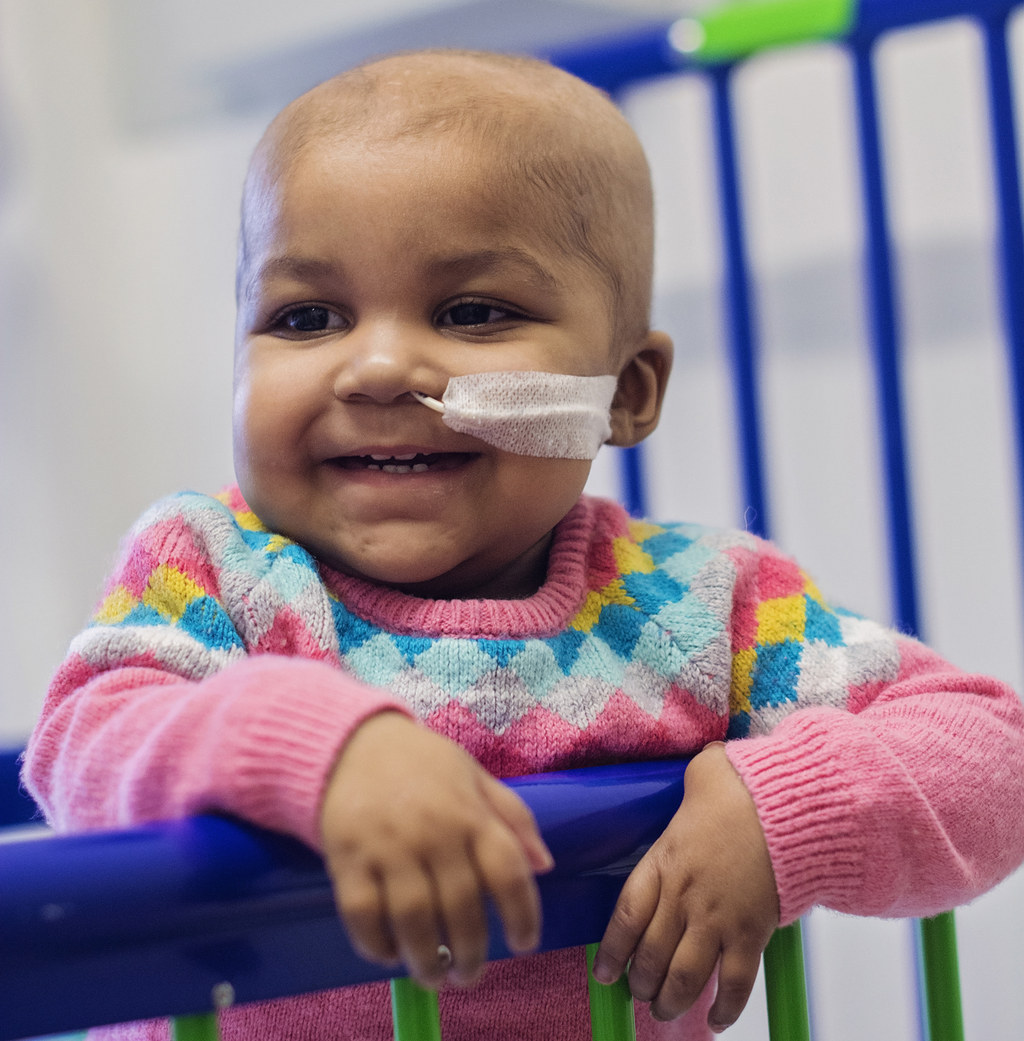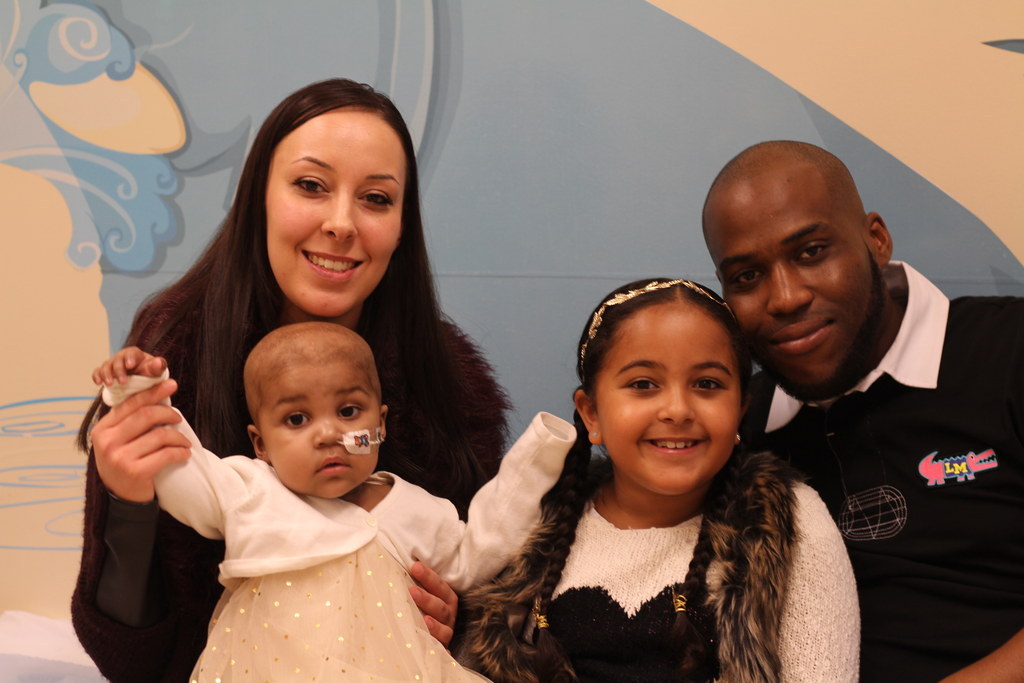A baby girl who had an aggressive form of leukaemia is now cancer-free thanks to the world’s first use of gene-edited immune cells, Great Ormond Street Hospital (GOSH) announced on Thursday.
Layla Richards was diagnosed with infant acute lymphoblastic leukaemia when she was 3 months old. Doctors described it as "one of the most aggressive forms of the disease we have ever seen".

Doctors gave Layla several rounds of strong chemotherapy treatments and a bone marrow transplant, and she was also sent to Sheffield for an experimental treatment, but nothing seemed to successfully kill the cancer cells.
Chemotherapy is used to treat patents with leukaemia, and is often successful. Yet the treatment can be ineffective in patients with aggressive forms of the disease, such as Layla's.
With no more treatment options available, on the day before Layla's first birthday doctors at GOSH told her parents to consider palliative care. But Layla's mother, Lisa, urged doctors not to give up.
"We didn't want to accept palliative care and so we asked the doctors to try anything for our daughter, even if it hadn't been tried before," she said.
Doctors informed Layla's parents of a new experimental treatment that was being developed to treat aggressive forms of leukaemia. It had been trialled only in laboratory mice, and so in order for Layla to receive one available vial of the treatment, an emergency ethics committee meeting was held.

The board decided Layla would be able go ahead with the experimental treatment. Despite the risks, Layla's parents had no doubts about trying the new treatment.
The treatment involves using "molecular scissors" to edit genes and create specifically engineered immune cells. These designer immune cells were programmed to kill drug resistant cancerous cells.
Layla's father, Ashleigh, said: "It was scary to think that the treatment had never been used in a human before but even with the risks, there was no doubt that we wanted to try the treatment. She was sick and in lots of pain so we had to do something."
A few weeks after Layla had received the treatment, she started to show signs of improvement.
Professor Paul Veys, director of bone marrow transplant at GOSH and the patient's lead clinician, said: "As this was the first time that the treatment had been used, we didn't know if or when it would work and so we were over the moon when it did.
"Her leukaemia was so aggressive that such a response is almost a miracle."

Layla is now recovering at home, and returns to hospital only for regular checkups.
GOSH consultant immunologist Professor Waseem Qasim said: "We have only used this treatment on one very strong little girl, and we have to be cautious about claiming that this will be a suitable treatment option for all children. But, this is a landmark in the use of new gene engineering technology and the effects for this child have been staggering.
"If replicated, it could represent a huge step forward in treating leukaemia and other cancers."
